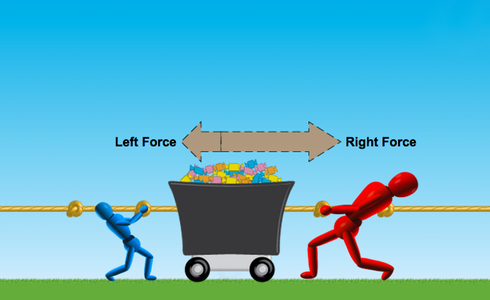On Today's Podcast
The Art And Science Of Staving Off Cognitive Decline
A new comedic play and a 20-year neurology study explore what we can do to prevent dementia and cognitive decline.
Listen NowFebruary 27, 2026
A new simulation shows large amounts of hydrogen in our planet’s core. Scientists report on what they found in 290-million-year-old vomit. Plus, a comedic play and a 20-year neurology study explore what we can do to prevent dementia and cognitive decline. And, a federal law aims to close the legal loophole that lets stores sell THC products from hemp.
22:09
Science Goes To The Movies: ‘The Imitation Game’
SciFri’s scientist-film critics weigh in on the Alan Turing biopic.
10:53
Making Space a More Democratic Place
What if anyone could 3-D-print a satellite in space? Or jet from the Earth to the Moon, using just the hydrogen found in a two-liter bottle of water?
Under The Influence Of Beer Foam
A team of fluid mechanics researchers at Princeton University dive into the anti-sloshing physics of foam.
Peek Inside A Mechanical Calculator
This machine was a predecessor to the electronic calculator.
SciFri Book Club: Vote for a Book to Beat the Winter Blues
Help the SciFri Book Club pick its next book.
Five Books Guaranteed To Make Kids Love Science
These kids’ books spark science curiosity with playful illustrations and facts to match.
Recipe: Jeff Potter’s Patent-Violating* Chocolate Chip Cookies
How to make cookies that stay chewy on the inside with crispy outer edges.
11:52
Evidence Mounts for Liquid Water on Mars
NASA reveals new evidence for a large lake that could have existed for millions of years on Mars.
17:22
Alan Alda Challenges Scientists to Answer: What Is Sleep?
Alan Alda’s Flame Challenge asks scientists to answer the big questions that keep them up at night to 11-year-olds around the world.
16:20
Food Failures: Cookie Science Secrets
In this episode, “Cooking for Geeks” author Jeff Potter gives home bakers tips on how to achieve cookie perfection using different sugars, fats, and flours.
20:28
DIY Holiday Gift Hacks
Avoid the long lines and hack your holiday gifts, from homemade perfume to 3-D printed ornaments.
26:00
The Best Science Books of 2014
Science writers Deborah Blum and Annalee Newitz join Ira to share their favorite science books of 2014.
The Underwater Robot That Could
Using data from a robot, scientists have created the first detailed, 3-D maps of Antarctic sea ice thickness.
Why I Riffed on Orion
If you really want a space mission to happen, you’ve got to do more than hope. You’ve got to sit down and seriously plan like they did in the ’60s.
Beyond the Butter: Twists on the Same Ol’ Ingredients
Two foodies offer baking ingredient twists—and scientific insight into why they work.
Fungal Freeways
Marcus Roper of UCLA explains how fungal networks function with remarkable efficiency and prevent microscopic traffic jams.
Simulate Net Forces to Predict an Object’s Motion
Use a simulation from PhET Interactive Simulations to model force in a tugging competition and a pushed skateboard.
21:26
Climate Deal or Not, Fight Against Global Warming Has Begun
Last year, for example, new solar plants outpaced coal installations in the U.S., and carbon-trading schemes across state and national borders have already begun.
7:42
How Long Does a President’s Legacy Last?
In 1991, 53 percent of students tested could recall Lyndon Johnson as the 36th president; that number dropped to 20 percent by 2009, according to a new study released in Science.
16:50
Paola Antonelli: ‘Design Is More Than Cute Chairs’
For MoMA curator Paola Antonelli, “design” includes computer interfaces, video games, and maker kits.

